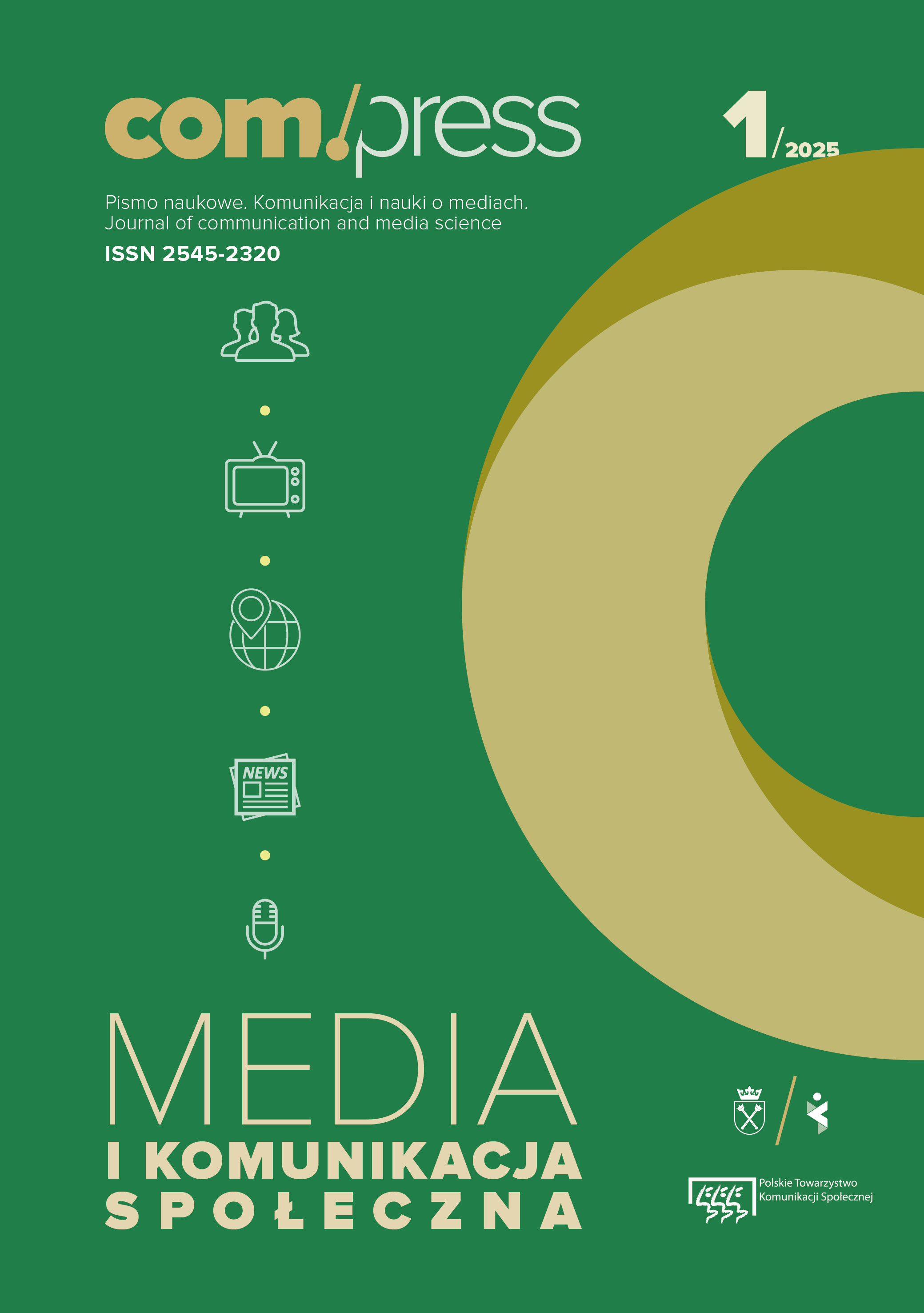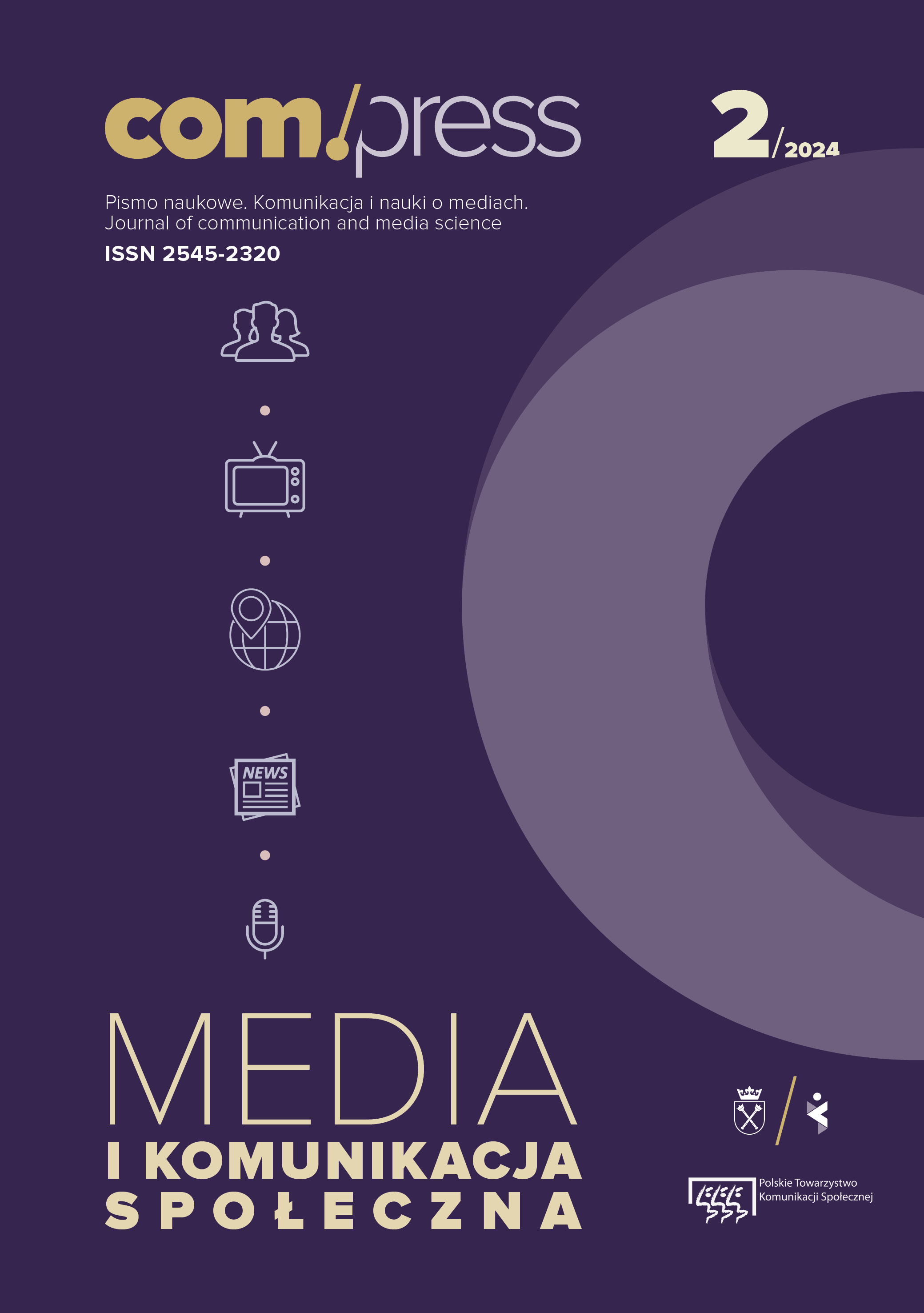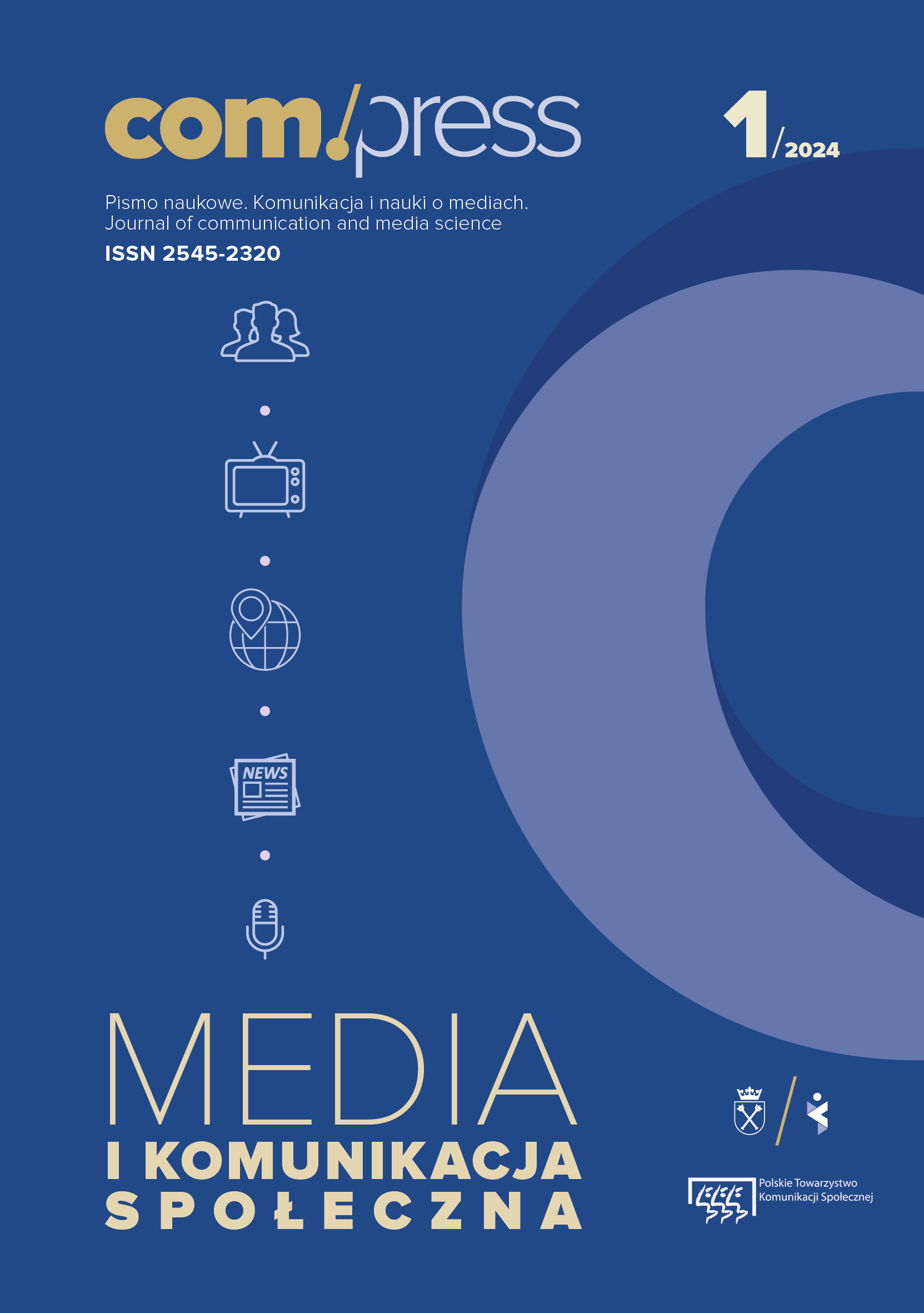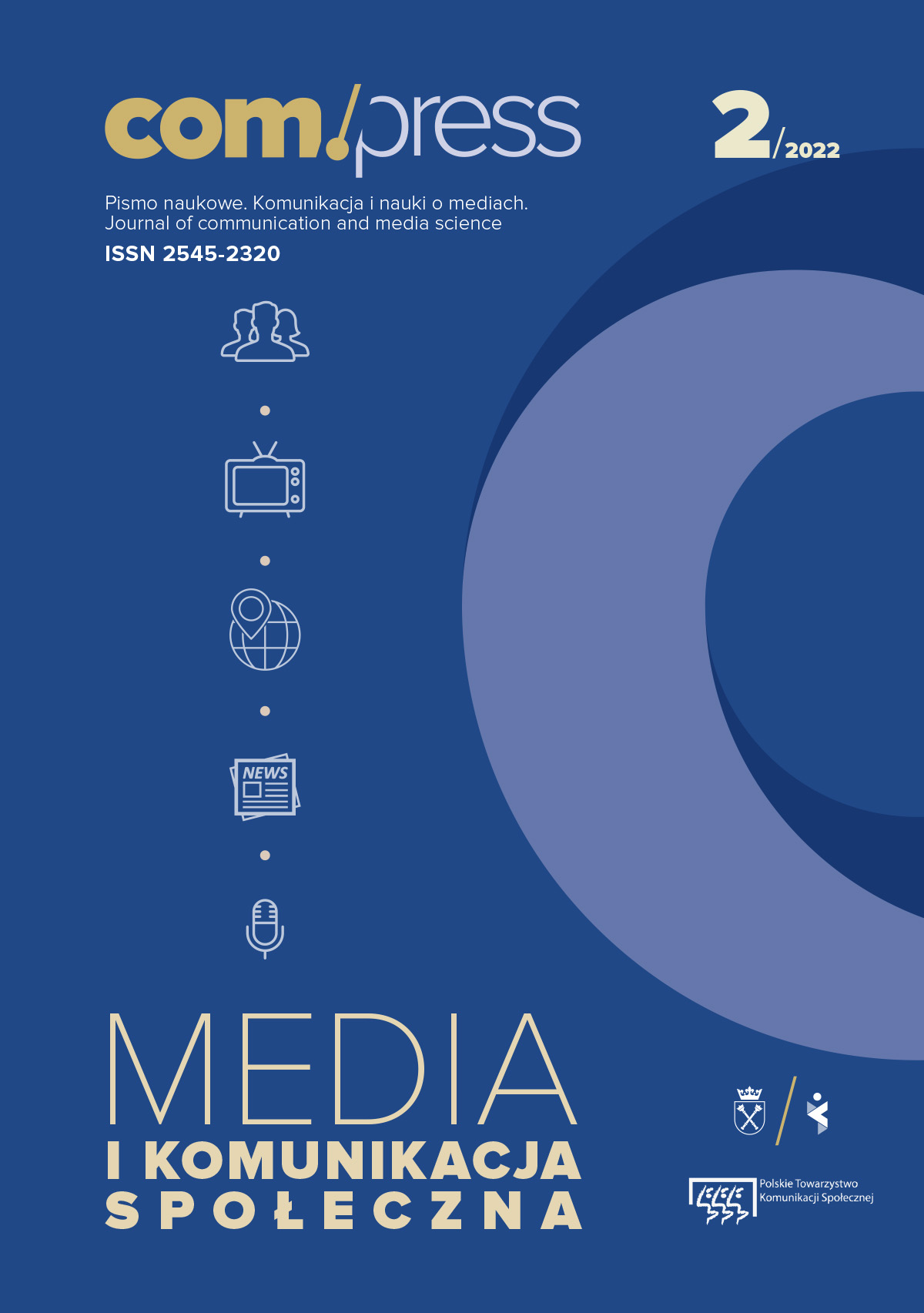Archives
-
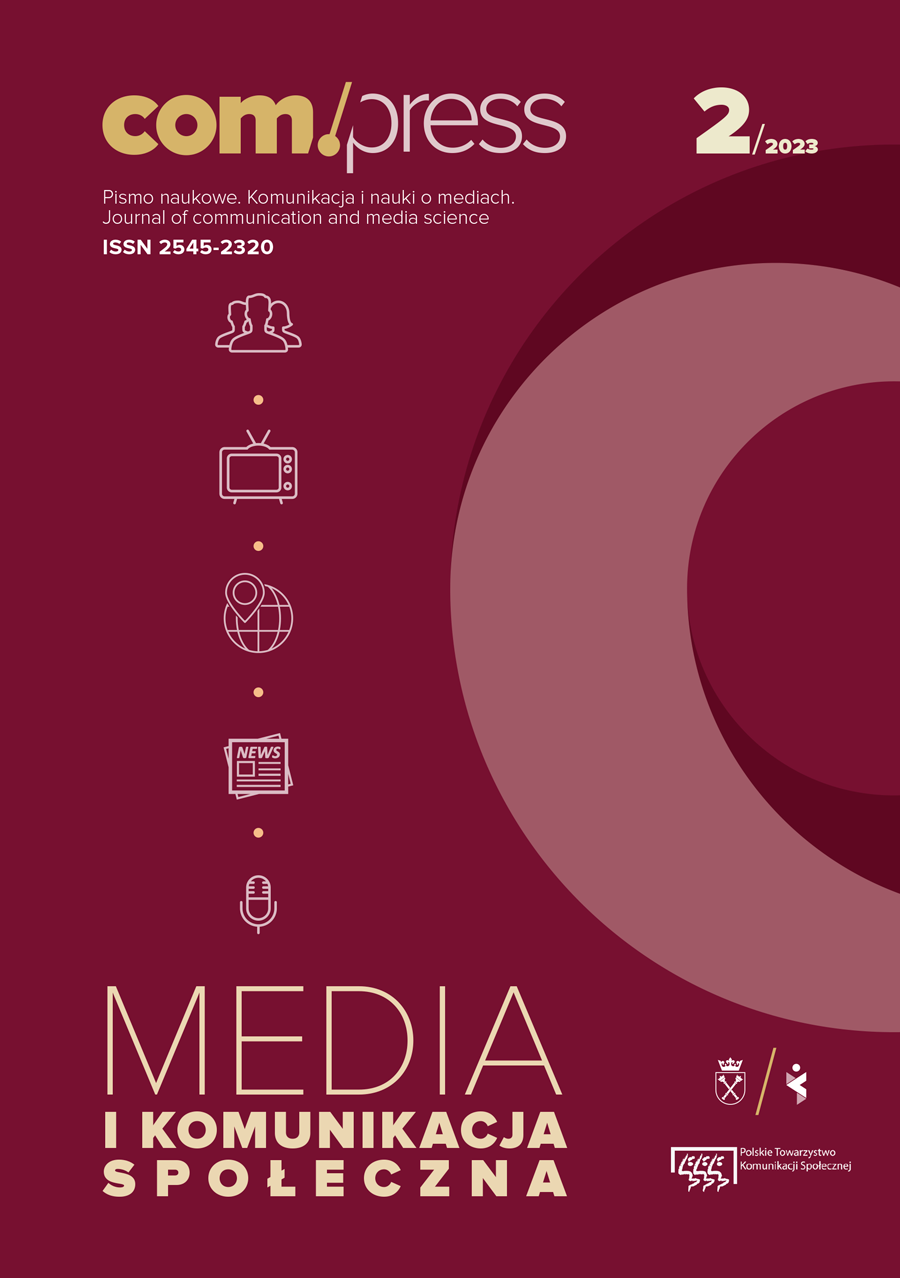
Media and Social Communication
Vol. 6 No. 2 (2023)The current issue of the "Com.press" gathers scientific texts by young researchers, which take up considerations that are within the various areas of the discipline of social communication and media science. The diversity of the topics addressed, as well as the proposed research perspectives, can demonstrate the remarkably wide-ranging nature of this field of social science.
Issue 2/2023 includes six scientific articles and one conference report.
-
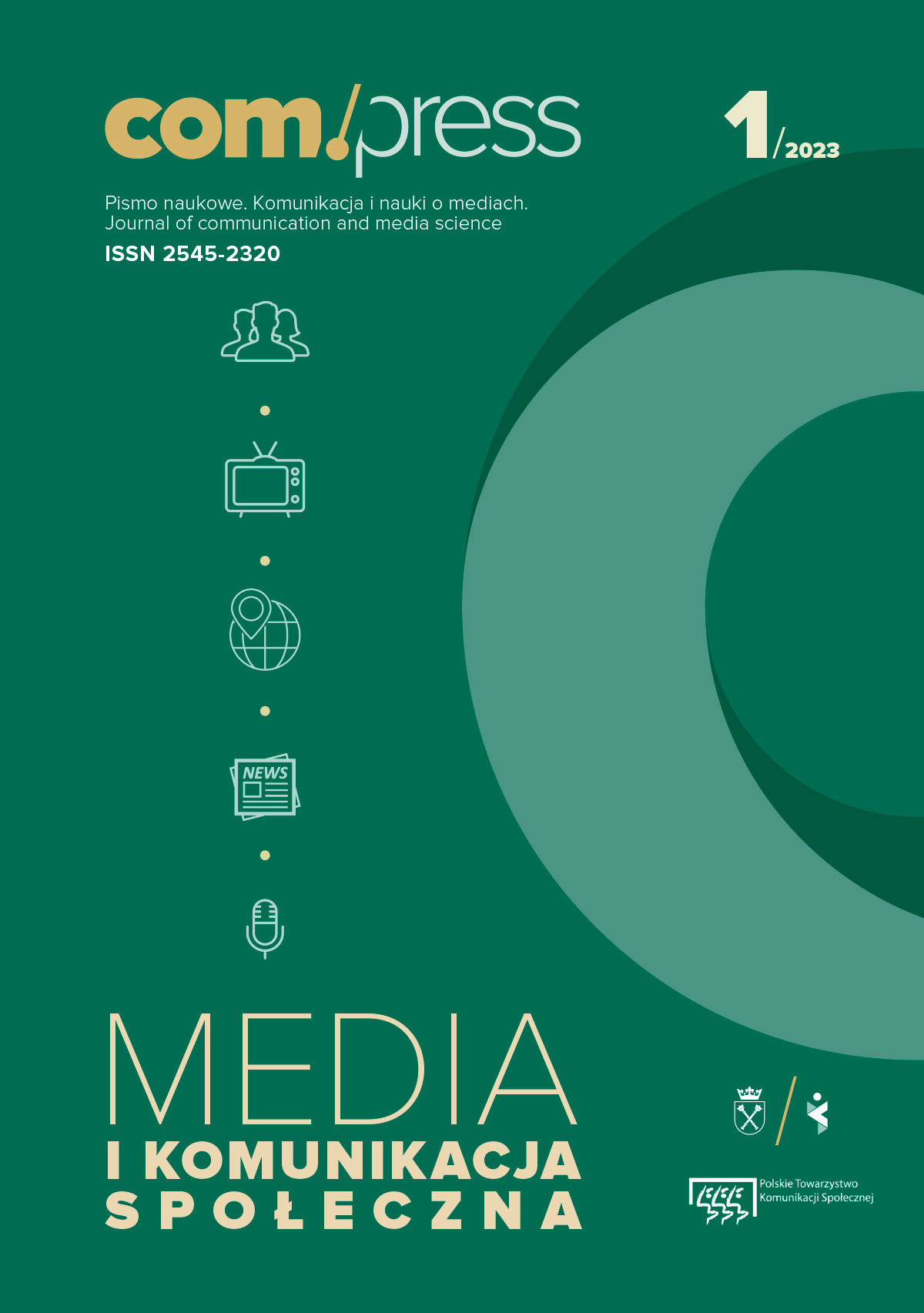
Media and Social Communication
Vol. 6 No. 1 (2023)Continuing the discussion undertaken during the 6th Congress of the Polish Communication Association (13th Central And Eastern European Communication and Media Conference, CEECOM) and the 5th annual conference “KNOWLEDGE – COMMUNICATION – ACTION” (Institute of Journalism, Media and Social Communication of the Jagiellonian University), we decided that the first issue of "Com.press" this year should focus on phenomena at the crossroads of algorithmization, platformization, datafication, and artificial intelligence.
In the last 70 years, the research on artificial intelligence and communication followed separate trajectories (Eom, Kim, 2022). However, with the growing number of personalized media platforms, it seems important to notice that algorithms have permanently entered our social life. Although most research suggests that users are largely unaware of how algorithms work (Eslami et al., 2015; Powers, 2017; Schwartz and Mahnke, 2021), David Beer (2009) points out that modern technologies are increasingly filtering, organizing, and ultimately constituting users’ daily experiences. Therefore, it is important to further reflect on how dataification, algorithmization, and artificial intelligence function in the information society.
The current issue of “Com.press” is meant to present a wide range of research and practical views on the relationships between media and the abovementioned phenomena as well as their implications. The issue encourages media and communication scholars to engage in critical analysis of this topic. The huge amount of existing data has created an unprecedented opportunity to reflect on how dataification, algorithmization, and artificial intelligence revolutionized the communication and media studies and brought significant implications for the whole society.
-

Media and Social Communication
Vol. 5 No. 1 (2022)The current issue of ‘Com.press’ focuses on the new – post-pandemic, convergent, and platformized – normality. Although the changing reality is a constant challenge for society, the analysis of changes is not an easy task – each time, the complexity of the process must be taken into consideration, especially when the transformations are taking place in the area of media and social communication.
The papers published in this issue are meant to help the Reader discover the scope and dynamics of the aforementioned changes, that will likely undergo further deepening and modifications in the new reality. Based on empirical research and data obtained from different reports, these studies deal with the subject of change in the media in various aspects, approaches, and perspectives. At the same time, they are also an attempt to answer questions about the nature, direction, and depth of these changes.
-

Media & Social Communication
Vol. 4 No. 1 (2021)In 2020, the world faced many challenges connected with the coronavirus pandemic. When lockdowns were introduced by governments, people were forced to adapt to the new conditions and change many of their existing behaviors. Work and education went online, the closure of shopping malls forced popular brands to develop online stores, and telemedicine has become standard practice – a test to IT solutions that had been so far slowly introduced in Poland. Culture, sport, entertainment, and even politics also went online, as exemplified by the presidential elections in the United States and Poland. The changes affected the media and social communication as well, which is why we would like to begin this issue of Com.press with four papers focusing on various aspects of the impact the epidemic has on the broadly understood social communication.
The issue begins with an interesting paper by Jakub Kocjan that raises the issue of the role of the media during the "pandemic" presidential elections in the United States. The author analyzes the broadcasting of the election results in November 2020 – a process that took an exceptionally long time to complete because of the introduction of postal voting due to the pandemic. Jakub Kocjan concludes that the traditional media behaved in a responsible manner by not taking any candidate’s side during the unprecedented strife between candidates and the premature announcement of the winner. He also highlights the role of social media as a platform for direct communication between candidates and voters.
With many bans and restrictions related to the pandemic in place, a more and more significant role is played by groups of people who oppose the changes and even doubt the existence of the pandemic itself, known as "coronavirus skeptics". Their communication on social media forums is analyzed by Karina Veltzé. In her paper entitled Denial as a Form of Adjusting to a Crisis Situation: Conspiracy Theories about the Coronavirus Pandemic among Internet Communities, she presents the results of a quantitative analysis and a content analysis of Facebook groups that focus on coronavirus skepticism and anti-vaccine issues.
The pandemic also affected sport and communication between sportsmen and their fans. Artur Babicz analyzes the changes in the ways speedway clubs communicate with their fans in social media after watching competitions live was banned due to the epidemiological threat. What is more, Wojciech Skucha analyzes how the pandemic influenced the viewership of sports events on Polish television and describes how the media adapted the coverage of sports events to the new conditions.
Apart from the papers devoted to the coronavirus pandemic, the current issue of Com.press also includes several interesting papers concerning other media-related topics. Anna Bielecka analyzes the use of the marketing strategy called storytelling in social campaigns and commercial advertisements. She conducts case studies of advertisements of several international corporations and distinguishes key constitutional elements of storytelling in building a narrative. Then, Justyna Jarocka draws the readers’ attention to the problem of cybercrime. In her paper, she focuses in particular on the issue of computer wiretapping in the context of the privacy of communication. Dominika Saad, on the other hand, presents very interesting methodological considerations on the subject of online surveys. She identifies the main sources of low-quality data in this type of research, which include careless responses, form-fill bots activity, and fraudulent behavior of manipulating IP addresses. Finally, we also publish a review by Łukasz Flak of the book by Piotr Tomasz Nowakowski entitled Fast Food for the Brain: On Television and Related Issues.
Enjoy the reading!

